Workplace Skills
Workplace skills are something that every employee simply needs to have, to one degree or another. They include both hard skills and soft skills and can be developed through a mix of experience and L&D. Here are the five most important workplace skills for individual and team success.
What Are Workplace Skills?
Workplace skills are those that enable an employee to perform their daily tasks. They are different from employee skills related to professional development, which are the focus of a longer-term career management initiative. Whereas workplace skills are needed in the here and now, the long-term capabilities that are the focus of professional development skills are built up over time and don’t necessarily relate to standard tasks. For example, a new employee who is developing negotiation abilities through a job shadowing program is not practicing workplace skills – at least not yet.
Different Types of Workplace Skills
Employees function in an ecosystem. Not many people deal only with themselves or work on only one task all day long. Instead, workers interact with different stakeholders in different ways throughout their regular routine, and these factors make up workplace skills.
Organization-Specific
Every company has a way of doing business, otherwise known as an “organizational culture.” HR people like talking about organizational culture because strong ones result in excellent rates of productivity, engagement, and retention. In fact, many companies spend significant resources on defining and creating their culture.
But on a daily level, the expertise developed to serve a particular company is a bit more down to earth. These include:
- Following operational and project management procedures
- Understanding hierarchies
- Familiarity with influential stakeholders
- Knowing about special product/service features and idiosyncrasies
Organization-specific skills are not always transferrable because each company has a unique group of processes and people. However, employees who are highly developed in this area know what to look for if they move to a new company.
Technical Skills
Once upon a time, the most complex piece of equipment in many organizations was a typewriter or cash register. Nowadays, even low-level employees need to master a range of technologies in order to perform typical tasks and communicate with others. For instance, the average number of SaaS applications purchased by companies is 130! Although about 44% of SaaS licenses go unused, that’s still a lot of user experiences to go through.
In addition, gone are the days when we could think of executives simply as those giving the orders. Many companies are raising a new breed of leaders who deal almost exclusively with technology, illustrating that hard skills are still a part of everyday life for even senior managers.
Was Steve Jobs right? He claimed that the best leaders “decide they have to be a manager because no one else is going to be able to do as good a job as them,” even though they are not really interested in leading people. These employees leverage their technical strengths despite not necessarily having great interpersonal abilities.
Followership / Leadership Skills
One area of mastery that executives practice on a regular basis is leadership. However, as companies incorporate growth mindset strategies more into their HR plans, leadership is transforming into a concept that is relevant at every level of the hierarchy.
But this no longer means a “command presence,” and certainly not being pushy. The modern leader should have a flair for things like self-awareness, emotional intelligence, adaptive skills, and strategic thinking. Obviously, very few leaders are born with these essential skills at a high level, and regular L&D as part of a continuous professional development program is a great way to round off these abilities.
On the other hand, no workplace functions without followership, which is a strength in itself. Actually, the best leaders in a company often show skills that overlap with followership, including empathy, taking the initiative, and the ability to listen.
Teamwork
From the morning meeting to crisis management, working in groups is something that most people do regularly. Teamwork is important simply to understand what’s on for the day. But successful companies leverage teamwork abilities as a way to encourage collective genius.
Teamwork skills actually come in two categories. There are affiliative interpersonal skills like communication, critical thinking, and professionalism that enable people to cooperate. Then there are personal proficiencies such as planning, time management, and creative thinking that allow individual members of the group to do their part of the work.
Self-Management
Closely related to the personal components of teamwork are the self-management skills that all of us rely on when wrapped up in our own tasks. Being organized and on time are two of the most well-known of them. However, simply taking care of yourself is another soft skill in this category. Being mindful, which is the ability to say “no” when you already have a lot on your plate, and being professional, which stops work issues from becoming personal, are also part of self-management.
“Crossover” Workplace Skills
Any HR professional who is arranging soft skills training programs or conducting a skill gap analysis can run into difficulty. Some workplace skills are useful both for individual needs and in teamwork settings, and so deciding between one-on-one programs or group sessions becomes an issue. For example:
- Problem-solving skills are necessary to address team challenges (for instance, during a brainstorming session) and during individual tasks.
- Critical thinking skills are helpful in picking out the best solutions that a person derives on their own or as part of a group discussion.
- Decision-making skills enable single employees to define an optimal path for their own activities but are also necessary when acting in a leadership role (including an informal one)
The solution is a skills development program that uses both individual and group-based training. For instance, Growthspace delivers one-on-one coaching and mentoring programs that focus on the single employee’s capabilities. Then, to enhance group dynamics, Growthspace provides team coaching and cohort-based workshops. By supplying both types of L&D programs, organizations can develop such crossover skills in various settings.
The Importance of a Skills Gap Analysis
But which ones are required by a particular worker? It’s not likely that, aside from organization-specific and technical skills, any of the categories listed above represent totally new skills for an employee. Instead, they will have varying levels of competency in every category, and it would be a waste of resources to send an employee to each type of course if they don’t need them.
That’s why, during a skills gap analysis, it’s essential to have a grading function. Skill levels can be evaluated through aptitude tests, behavioral assessments, performance reviews, and other methods. The results of the evaluations should be numerically shown in a skills gap analysis template so that you can understand the urgency of upskilling a certain employee. If your organization needs critical thinking skills today, but an employee has been graded poorly in that area, then they should be first in line for the relevant course.
The goal is to avoid “one size fits all” courses that have been (and still are) a weakness for HR/L&D initiatives. In fact, this approach is often criticized as being the number one mistake made by L&D managers when organizing employee training programs. By adjusting the training to individual abilities and workplace skill needs, the organization minimizes wasted time, puts more focus on what’s important, and develops an employee who has the optimal skills for the job.
A Productive Workplace Depends on Growthspace
Every company relies on the skills of its employees to survive. But if the goal is true success, then those skills need to be actively built. Yet many organizations struggle to deliver effective learning and development programs because the challenge of matching courses to the individual needs of each worker is so difficult.
That’s why Growthspace is the precision skills development platform built to provide customized development with a domain expert. The platform makes it easy for HR to set training goals for each worker, deliver personalized learning, and assess the entire program across the company. To build the right skills for your workplace, rely on Growthspace.















